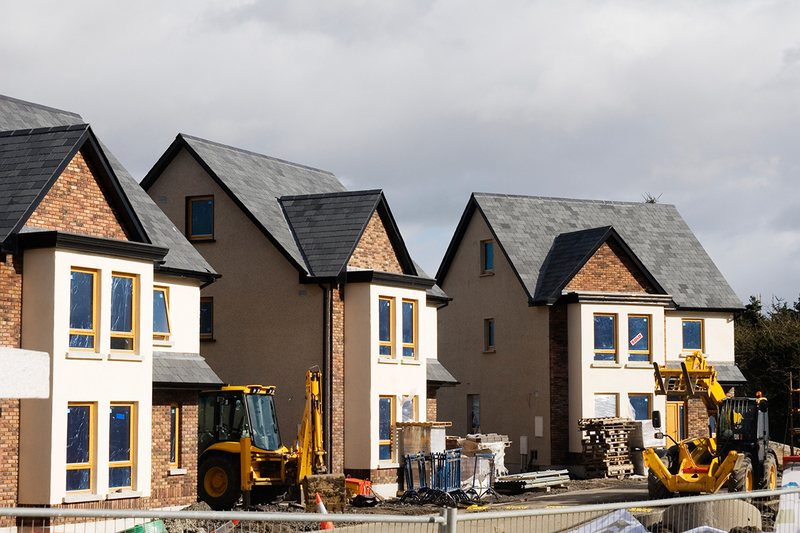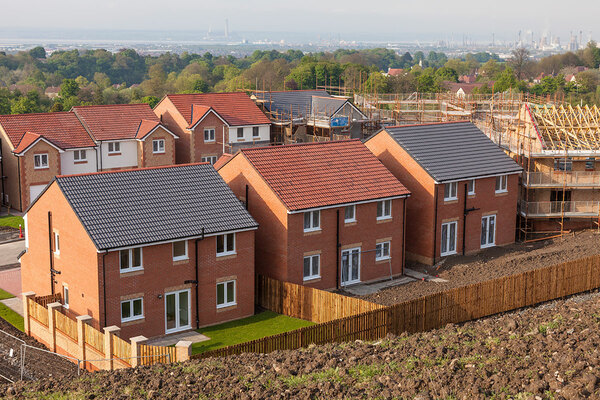You are viewing 1 of your 1 free articles
We will deliver thousands fewer affordable homes with First Homes policy, G15 tells ministers
Major London housing associations will deliver up to 3,600 fewer affordable homes a year if the government pushes ahead with its First Homes policy, ministers have been warned.
The G15, which represents 12 of England’s largest social landlords, said the government’s plan “is of significant concern” in response to a recently closed consultation.
Replacing affordable homes lost to the policy would cost an extra £1bn a year in grant, the National Housing Federation (NHF) said in its response.
The Chartered Institute of Housing (CIH), the Local Government Association (LGA), London Councils and the Home Builders Federation (HBF) also warned that the policy would cut affordable housing delivery.
Questions were also raised about whether the First Homes – available for sale at a 30% market discount – will be affordable in most areas of the country.
Savills research carried out on behalf of the LGA found that there are only four local authorities where median-income households could afford to buy a home with a 30% discount and 5% deposit.
Under proposals published in February, the discounts would be paid for through Section 106 planning contributions from developers – which are usually used to fund affordable housing.
In response to the consultation proposals, the G15 presented analysis showing that if 80% of Section 106 housing was earmarked as First Homes, it would be able to deliver 3,629 fewer conventional affordable homes a year.
If 40% of Section 106 was reserved for First Homes – the lowest proposal in the government’s consultation – 1,814 affordable homes of other tenures would be lost.
The G15 said First Homes should instead be provided on small sites so as not to displace affordable housing.
It comes as the body backs a campaign to build 100,000 affordable ‘Homes for Heroes’, prioritised for key workers put at risk during the coronavirus pandemic.
Around half of new affordable housing is delivered through Section 106, with most of the rest paid for through government grant and cross-subsidy from homes built for market sale by social landlords.
Helen Evans, chair of the G15 and chief executive of Network Homes, said: “Our analysis, based on the current incomes of a range of essential workers, shows that they need a mixture of social rent, discounted rent and shared ownership.
“First Homes will be simply unaffordable for most essential workers in London, which is why they are not part of our Homes for Heroes proposals.”
The NHF said that while First Homes “could make an important contribution” to increasing homeownership, it is concerned that if funded through Section 106 the policy “will significantly reduce the supply of social and affordable homes to rent in areas of high need”.
It added: “We also note that in many areas First Homes are unlikely to be affordable to most buyers without a very significant, and therefore expensive, discount.
“In most local authority areas, even a 50% discount would not bring median-priced new homes within reach of median income households.”
The LGA said 50% discounts or higher would be needed in 171 council areas – more than half – to be affordable to median-income households.
The CIH echoed those concerns, warning that using developer contributions to fund First Homes “is certain to displace delivery of other affordable tenures” while the proposals “may fall short of their ambition to provide affordable homes to first time buyers and key workers”.
London Councils said it “does not oppose the principle of [First Homes], but is concerned that the current proposals to divert Section 106 contributions away from social and affordable rent and shared ownership will make it more difficult to provide homes for people on median to lower incomes.”
The HBF backed the proposals, but said “it is important to acknowledge that the introduction of First Homes as a policy requirement is likely to have an impact on development viability, and if not carefully balanced with current planning obligations will place pressure on the ability to deliver other traditional forms of affordable housing”.
Ministers are currently considering responses to the consultation.
Sign up for our daily newsletter
Already have an account? Click here to manage your newsletters














